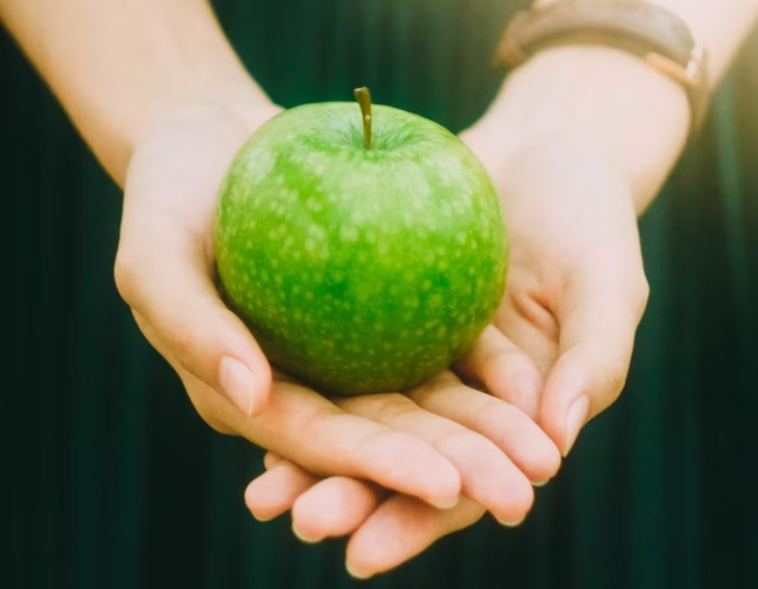- Like
- SHARE
- Digg
- Del
- Tumblr
- VKontakte
- Flattr
- Buffer
- Love This
- Save
- Odnoklassniki
- Meneame
- Blogger
- Amazon
- Yahoo Mail
- Gmail
- AOL
- Newsvine
- HackerNews
- Evernote
- MySpace
- Mail.ru
- Viadeo
- Line
- Comments
- Yummly
- SMS
- Viber
- Telegram
- JOIN
- Skype
- Facebook Messenger
- Kakao
- LiveJournal
- Yammer
- Edgar
- Fintel
- Mix
- Instapaper
- Copy Link
Introduction
Food is essential for the body’s ability to repair itself and sustain its health. However, certain life circumstances make us forget that. The use of alcoholic beverages and illegal drugs has a generally negative impact on the human body. It takes time and effort to recover from alcohol or drug misuse. Nutrition is only one of the many concerns that must be addressed along the way. But, nutrition plays a role in addiction recovery, and it’s quite an important thing to consider.
How does addiction affect nutrition?
Being an addict is a serious health condition. There are two levels of addiction – psychological and physical. When you get to the point of physical dependence – your body becomes a battlefield of molecules. The overuse of alcohol inhibits the absorption of nutrients in your intestines. Also, ethanol stimulates certain liver enzymes that regulate the cascade of other nutrients’ metabolisms. Vitamine B1 (or thiamine) is a coenzyme for the most important enzymes that detoxicate ethanol in the liver. That’s why most people in alcohol rehabilitation are deficient in thiamine by rule. Ethanol disturbs the pathways of glucose too. Your muscles and other tissues in your body can use fatty acids for nutrition, but the number one nutrient for your brain is glucose. That’s why its deficiency is the major problem of alcoholism.
Other addictions, like drug abuse, can lead to the same problems with nutrition but in a different manner. When you use psychostimulants, it often activates your ‘fight or flight’ response. The adrenaline rush will make you lose your appetite and forget to take the essential nutrients. Overconsuming marihuana, on the other hand, will mess up your nutrient levels in the opposite direction – you’ll consume way too much food.
Other factors in addiction also negatively affect your diet. A lot of addicts spend all their finances on their addiction. Then, poverty leads them not to take the essential vitamins and other nutrients. The only focus is to satisfy the addicts’ urge, and everything else becomes irrelevant – including food.
Addiction recovery without proper nutrition is destined to fail
Studies have shown a strong link between drug addiction, poor diet, and depressive symptoms. Attempting to recover from addiction while undernourished increases your risk of experiencing mood swings, anxiety, a short attention span, poor energy, and cravings throughout your recovery. While recovering from drug abuse difficulties, establishing a balanced diet and maintaining correct nutrition may assist you in gaining more energy and improving your mood. Quality nutrients are food for the soul in fighting addictions. That’s why you should never downplay the role nutrition plays in addiction recovery and rehab.
The number one priority is to recover neuroplasticity
In the brain, addiction takes hold. Individuals who misuse drugs and alcohol have alterations in their brains due to substance abuse. It doesn’t take long until the brain “learns” to depend on the chemicals to feel “normal.” This implies that the brain begins to “think” that the mind and body need the chemicals in question to operate normally. This is how addiction forms. But fortunately, the brain can adapt and “unlearn” the negative connections and behaviors that have formed through time.
That is neuroplasticity, which refers to the brain’s capacity to adapt to and acquire new skills, and it is an essential notion in addiction rehabilitation. It is possible for the brain to “master” better habits and operate more properly even after enduring the consequences of addiction. Healthy behaviors must be re-learned, which is not an easy task. It is far more challenging to readjust to sobriety after addiction has altered the brain. It is possible to increase neuroplasticity with an appropriate diet, though, and here’s how.
Carbohydrates are your best friends
Glucose and other carbohydrates aid in the production of serotonin inside the brain. With the aid of serotonin, you can lessen drug and alcohol cravings. Carbohydrates achieve this by giving the brain more time and energy to devote to forming new neural connections that may lead to the development of better behaviors. Moderate carbohydrate consumption may also aid in maintaining a steady mood while promoting sound sleeping habits.
Amino acids and dopamine
The amino acids will aid in stabilizing dopamine levels in the brain, which we all know is essential. The absence of these vital nutrients is associated with increased cravings, rapid and unfavorable mood shifts, and increased levels of hostility among those in recovery. Dopamine also aids in the motivation of the brain to adapt and is essential in the processes of learning and memory formation. That’s why foods high in amino acids are a must in your diet while recovering.
Fats are crucial components
Dietary fat will help you decrease inflammation and protect cell membranes in the brain. This could do wonders for the facilitation of neuroplasticity and memory consolidation.
Omega-3 fatty acids are also known to help decrease inflammation in the brain. Experts at Bright Futures Treatment Center make sure that their clients receive balanced meals which are filled with healthy fats. They are crucial to maintaining the proper balance of neurotransmitters (chemical messengers) in the brain. Restoration of equilibrium helps prepare the brain for a change, which in turn facilitates neuroplasticity, resulting in the formation of new, healthier neural connections.
The whole process is not unidimensional
Recovery from addiction is a multidimensional process, but making smart food choices may aid in the promotion of neuroplasticity in the brain throughout recovery. It is also possible to begin to improve your life in various ways by changing the way your brain functions.
Nutrition plays a role in addiction recovery, but never solo
Yes, having proper nutrition plays a role in addiction recovery. But, simply changing your diet will not be a magical cure for the molecular mess-up that has happened to your body. There are a lot of other efforts you need to make to see change. It’s not easy, and it never will be. But, at the same time, it’s not impossible. Changing your diet is a good start. Let your loved ones (and professionals) help you with that. Take some control over your life and look forward to a bright future.


